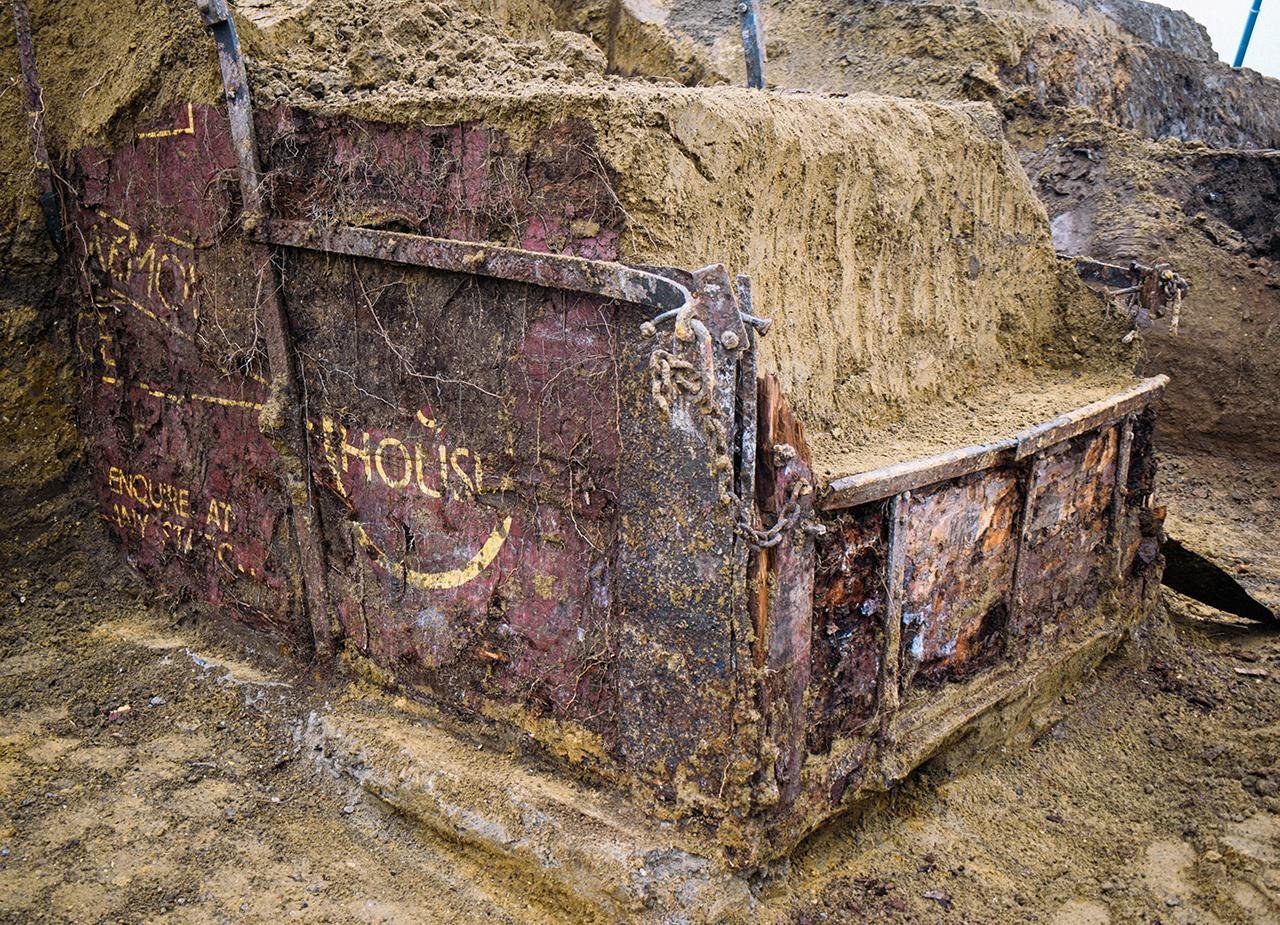Archaeologists in Antwerp, Belgium, working on excavations for the Oosterweel Link project, have uncovered the remnants of a 1930s British railway carriage belonging to the London North Eastern Railway (LNER).
 Credit: Oosterweel Link
Credit: Oosterweel Link
The discovery has sparked intrigue as to how and why this piece of railway history ended up buried in Antwerp, hundreds of kilometers away from its usual operating grounds.
The carriage, identified as a Container Conflat BK 1820, was originally used for furniture removal, a common practice during its time. Painted in red oxide, a color typical of the early 1930s before being replaced by the characteristic Oxford blue livery, the carriage bears inscriptions such as “…NITURE REMOVAL TO HOUSE”, “Enquire at any station”, “BK 1820”, and “LNER”.
Stuart Thomas, communications director of LNER said: “Just last year we celebrated 100 years since the LNER came into being in 1923. In our 101st year, it’s incredible to discover a little bit of LNER history has been buried in a field in Belgium for so many decades.”
 Credit: Oosterweel Link
Credit: Oosterweel Link
The excavation site, located in the Noordkasteel district, once housed a 19th-century fortress converted into a recreational park in 1934. Lies Dierckx, one of the archaeologists involved in the discovery, recounted the moment they stumbled upon the buried carriage. She explained, “At first, we had no idea what we had bumped into. We saw lettering on a kind of maroon metal container.” Further investigation revealed its idenтιтy as an LNER train carriage.
Despite the excitement surrounding the find, the fragile state of the carriage posed significant challenges during recovery. Attempts to extract it from the muddy soil resulted in its disintegration, leaving little more than remnants of its once-sturdy structure. Dierckx lamented, “The sides were not stable enough to remain standing. During excavation work, the carriage toppled over and completely pulverized.”
 Credit: Oosterweel Link
Credit: Oosterweel Link
While the exact circumstances leading to the burial of the carriage remain unclear, theories suggest it may have served as storage when the Noordkasteel transitioned into a recreational area.





